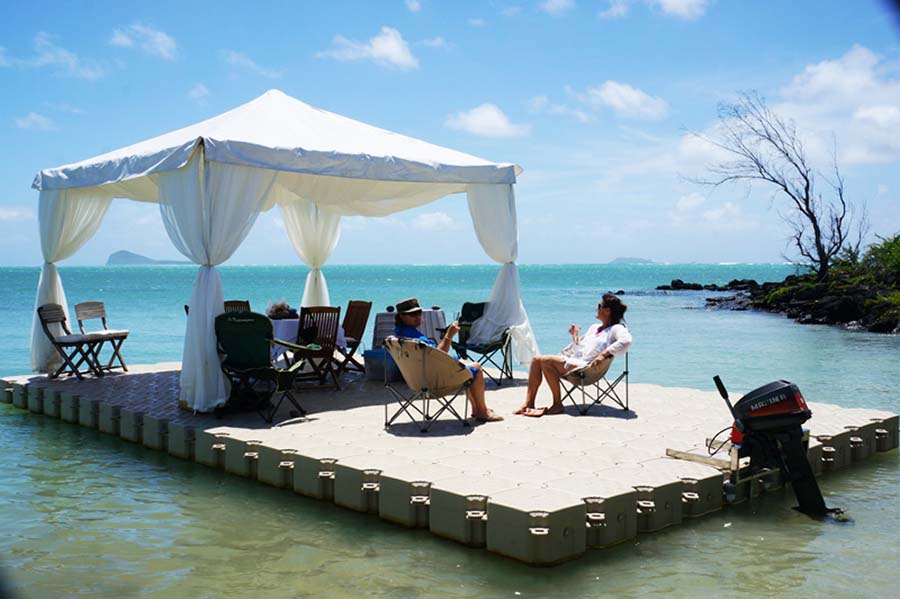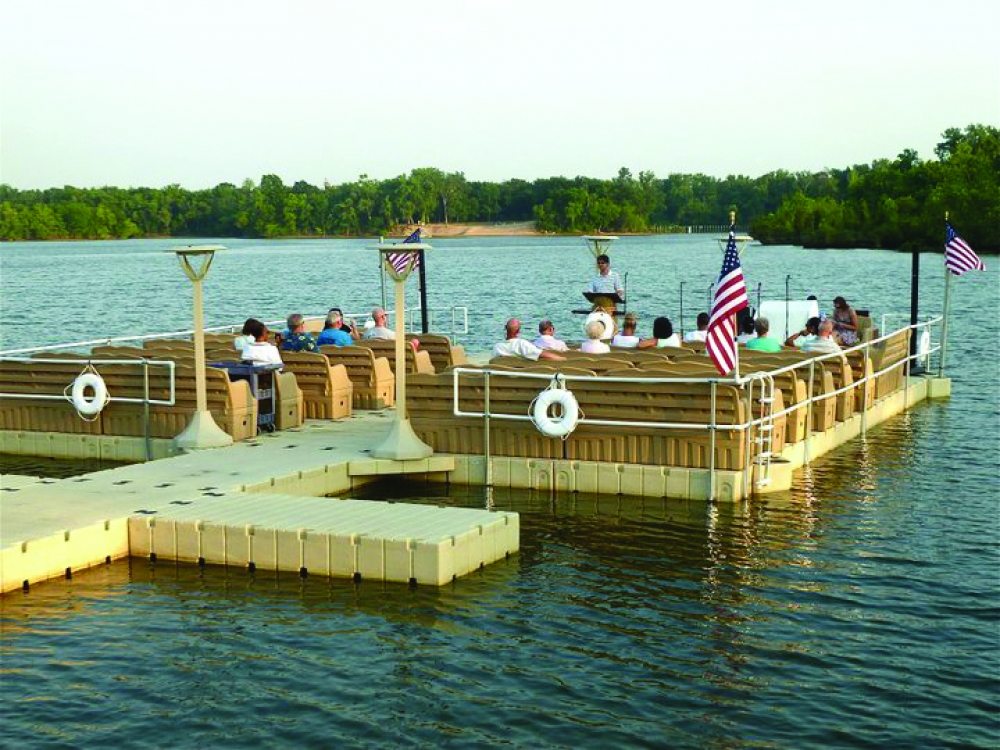Floating Docks: The Suitable Selection for Versatile Water Access
Floating docks present an engaging solution for a selection of water access needs, offering convenience that transcends standard mooring options. Their capability to adapt to fluctuating water degrees while ensuring stability and safety and security makes them particularly useful for both recreational and industrial applications. The modular nature of floating docks facilitates modification, providing to specific requirements. The subtleties of installment and upkeep, together with the array of applications, require a closer assessment to totally value their prospective benefits and ramifications for river gain access to methods.
Benefits of Floating Docks
Floating docks deal many advantages that improve water access for different applications. Their ability to fall and increase with altering water degrees makes them specifically advantageous in atmospheres with varying trends or seasonal variants. This versatility makes certain that vessels can quickly tie without worry for the water's depth, supplying a trustworthy system for recreational, industrial, and industrial uses.
Additionally, floating docks are usually created from durable materials that withstand rust, making them appropriate for long-term usage in marine settings. Their setup is usually much less invasive than conventional set docks, lowering the ecological influence and promoting quicker implementation (floating dock builder). This adaptability enables less complicated moving or reconfiguration according to customer requirements or ecological adjustments
Security is an additional essential advantage; floating docks can offer stable access for individuals getting off or boarding from watercrafts and minimize the risk of mishaps connected with unpredictable surfaces. Furthermore, they can be created to accommodate a selection of devices, such as cleats and fenders, boosting capability. In general, floating docks stand for a reliable option for improving water accessibility across diverse fields while promoting safety and security and environmental sustainability.

Types of Floating Docks
Various types of floating docks provide to various requirements and atmospheres, each created with details attributes to enhance functionality. One of the most common types consist of modular docks, which contain interlocking sections that permit very easy customization and development. These docks are excellent for entertainment usage, as they can be customized to fit various watercraft dimensions and water problems.
Another popular choice is the stationary floating dock, which remains secured in area however floats with changing water levels. floating dock company. This kind is particularly suited for locations with very little tidal variations, giving secure gain access to for angling or swimming. In addition, there are drive-on docks, which include a sloped style that permits watercrafts to conveniently drive on and off, making them ideal for personal watercraft and smaller sized vessels
For business applications, heavy-duty floating docks are readily available, created from reinforced materials to stand up to substantial loads and severe marine settings. Lastly, environmentally friendly floating docks utilize sustainable products and layouts to decrease ecological influence, usually including features like plant life to support neighborhood wildlife. Understanding the various kinds of floating docks makes sure that users can choose the most proper remedy for their particular needs.
Installation Process Summary
An effective installation of floating docks needs careful preparation and attention to information to ensure ideal performance and safety. The preliminary step involves assessing the site conditions, consisting of water deepness, current, and prospective challenges. This assessment educates the selection of the proper dock products and design customized to the certain environment.
Following, acquiring needed licenses is crucial, as lots of jurisdictions have regulations relating to building on water bodies. The setup can proceed when consents are protected. Begin by preparing the structure, which might include anchoring systems or pilings tailored to the dock type and regional conditions.
Complying with the structure setup, assemble the dock sections according to helpful hints maker requirements. Make sure that all elements are securely attached and lined up to withstand ecological tensions. Placement the dock in the marked location, guaranteeing it is degree and stable.

Maintenance Tips and Best Practices
After the installment procedure is complete, continuous maintenance plays an essential role in guaranteeing the longevity and capability of floating docks. Routine examinations need to be carried out to determine any type of signs of wear, damage, or damage - floating dock builder. Look for any type of loosened installations, splits, or splitting up in the dock sections, as these can endanger architectural stability
Cleaning up the dock is vital to get rid of debris, algae, and other accumulation that can affect its look and security. Use a mild pressure laundry regularly to maintain cleanliness without creating damages to the surface area. Additionally, applying a safety sealer every couple of years can help enhance longevity and resist environmental wear.
Take note of the mooring lines and anchors, guaranteeing they are free and protected from deterioration. Change any kind of abject components immediately to avoid hazards. Seasonal adjustments may likewise be required; during extreme weather, repositioning or reinforcing the dock can prevent damages.
Applications for Floating Docks
Floating docks serve a multitude of applications, dealing with both industrial and leisure demands. In entertainment settings, they supply seamless access to rivers for tasks such as boating, fishing, and swimming. Their flexible nature enables installation in differing water levels, ensuring secure and safe access despite tidal variations.
Readily, floating docks are vital for marinas and waterside organizations. They promote the docking of vessels, making it possible for efficient unloading and loading of products. Their modular style allows for simple development or reconfiguration to suit changing organization needs, making them ideal for boat leasings, tour procedures, or angling charters.
Furthermore, floating docks are used in environmental applications such as marine study and habitat repair. They can offer as platforms for clinical research studies, keeping track of water top quality, or conducting wild animals surveys without troubling delicate environments.
In industrial contexts, floating docks are employed weblink in building tasks, providing accessibility to hard-to-reach locations for equipment and workers. Their versatility, durability, and very little influence on the atmosphere make them an optimal option for a vast array of applications, improving both capability and availability in different water-based atmospheres.
Conclusion
In final thought, floating docks represent an optimal service for varied water gain access to requires, owing to their adaptability, sturdiness, and modular layout. Floating docks serve as a useful asset for recreational, commercial, and ecological jobs, ensuring reputable accessibility to rivers and promoting sustainable practices in water environments.
Floating docks existing a compelling option for a selection of water accessibility needs, providing adaptability that goes beyond conventional mooring alternatives.Floating docks deal many benefits that enhance water accessibility for numerous applications. Overall, floating docks represent an efficient option for improving water gain access to across varied fields while promoting safety and security and environmental sustainability.
Another preferred choice is the fixed floating dock, which continues to be secured in location yet drifts with transforming water degrees.In conclusion, floating docks represent an optimum remedy for diverse water gain access to needs, owing to special info their versatility, resilience, and modular style.